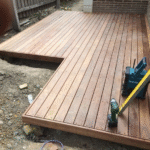A prosthesis is perhaps the only rehabilitation option an amputee has. Around the world, hundreds of thousands of people lose their limbs due to amputations. Amputations are desperate measures taken in order to save a life from certain death. Unstoppable cancer, an infection or maybe a bad wound can lead to amputations. These operations are done as a life-saving measure hence very candid in nature.
The loss of a limb is a huge loss for the human body. The anatomy of humans is optimized to utilize most of its components. Organs perform collective and overlapping tasks. Loss of function of one organ can lead to multiple system failures. Loss of a limb destroys body balance and limits the productivity and mobility of an amputee. A prosthesis of our time can not however give back all the functions and sensations of a lost limb but it can give back enough to usher an amputee back to life.
Post amputation period for most of the amputees is hellish in nature. The trauma of loss might accompany the trauma of accident or misadventure. Isolation creeps in and depression rises from the ashes of hope. Plagued with frustration and severe anxieties of incapability, an amputee loses all the motivation to carry on the fight till the end of life. In many cases, people lose the usual livelihood and professional aspects of life.
The empowering experience of a bionic prosthesis gives back the option of earning. And the motivation can come back in the process as well. For many people who depend on the limbs for daily bread, a bionic prosthesis can rehabilitate the loss and satisfy the dependence.
How it works
A bionic prosthesis is controlled by a powerful microcomputer. The task of this computer is to translate electromyographic signals into gestures and actions in accordance with the hardware support. The computer receives electromyographic data from the EMG sensors placed on the skin of an amputee. These sensors are non-invasive in nature, hence can not reach the sensory nerves buried deep beneath the muscles. The ability of these sensors is thus restricted to motor signal reception only. The hardware determines how many actions a prosthesis can perform and how much money it might cost.
The fight for independence
A person who has lost a vital component of their body will most likely be dependent on people close to them. A bionic prosthesis grants the necessary independence to the amputee so that valuable human resources and time can be saved.
The welding process of a bionic prosthesis is fairly long. The calibration and optimization process requires a long time and practice. During this time the amputee is expected to learn the capabilities and limitations of the new enhancement. This process is important because this ensures steady and sustained performance. Sophisticated electronics are prone to damage from wind dust and water exposure. In order to prevent deposition, the wielder must know how to maintain the clean and working state of the device. This awareness ensures a long term good experience.
Excluding frustrations from daily life
Loss of a limb steals a lot of essential abilities. These abilities are sometimes essential for keeping a happy composure. Loss of a limb means these activities will be limited or cease to exist. As a result, alongside multiple anxieties frustrations will creep in and destroy the calm and peaceful composure. A bionic robot arm gives back the essential abilities, which can sometimes alleviate the frustrations of not being able to perform daily tasks. Sudden loss of these abilities robs the motivation and confidence,
Eliminating the depression of seclusion
Amputation procedures take a long time to heal. During this time an amputee spends long durations in seclusion. During this period, the amputee deals with multiple trauma of losses. These traumas deal major damage to confidence and willingness to go out and socialize, even after the implementation of prostheses. A fairly long time with a bionic prosthesis brings back the motivation to socialize. It removes the feeling of being lost and alone by rendering an amputee able to act and perform normally. Hence, depression can be treated with extreme finesse.
Author’s note
The awareness regarding the existence of advanced prostheses, able to follow the wielder’s wills, is lacking in our country. Being a member of the third world, many amputees of our country simply give up because they don’t know the options they have after an amputation. The educated and learned must rise up in order to enlighten and help these lost souls and make our planet a better place to live in.




